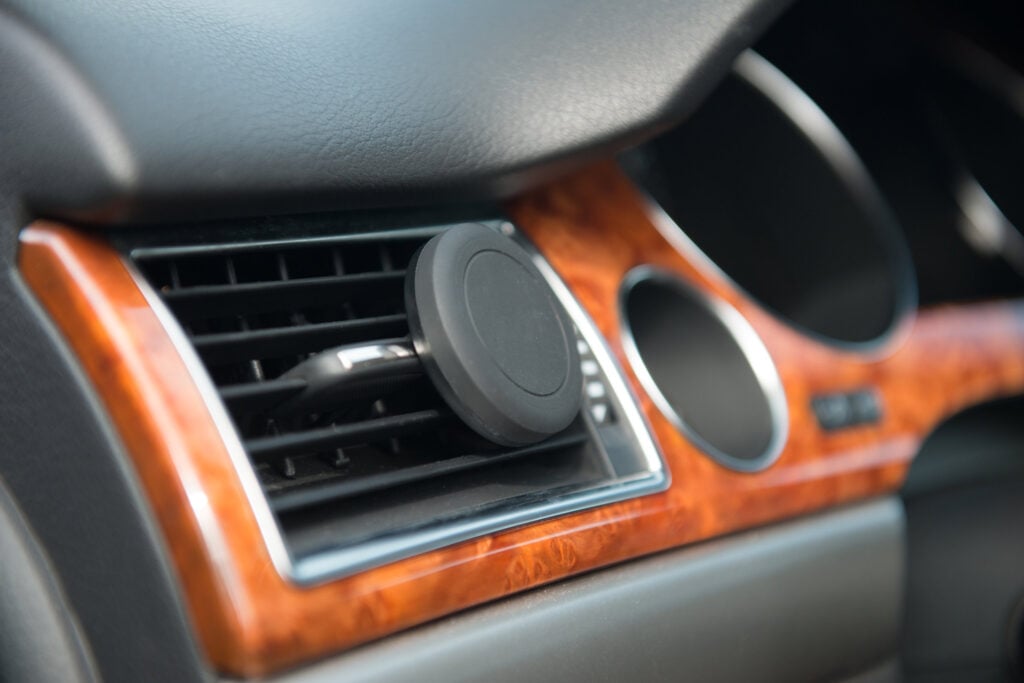Are Magnetic Cases Bad For iPad?
You may have heard that magnets are bad for electronic devices, so it seems logical that you wouldn’t want a magnet anywhere near your iPad. However, magnetic cases are incredibly popular. Are magnetic cases bad for iPads?
Magnetic cases are not bad for any model of iPad. The magnets in magnetic cases aren’t strong enough to cause harm to an iPad. Instead, they work with the magnets built-in to iPads to keep the cover of the case closed. A variety of companies, including Apple, manufacture magnetic cases for iPads.
Here you will find the answers to where the idea of magnets damaging electronics came from, why magnetic cases don’t affect iPads, how magnetic cases work, and how magnets are used around technology today.
History of Magnets and Technology

Magnets near devices were a problem back in the days of floppy disks, tape cassettes, and Cathode Ray Tube TVs. A magnet near one of these items could erase the stored data or destroy the screen. The idea that magnets are harmful to technology is a dated and flawed belief.
Magnets are still used in technology, just in a different way. Within the last decade, magnets have become essential in the world of technology. Magnets don’t just stick things together. They can store data and make electricity, so they are used in numerous technological devices.
Today, modern electronic devices don’t use magnetism to store data. Data is stored electronically. Ideal Magnet Solutions reports that smartphones can have up to 14 tiny magnets inside of them. These small magnets help the phone with GPS functionality, vibration mode, and talking from phone to phone.
Apple now uses magnets in a variety of its products including the iPad, Apple Watch, iPhone, and a variety of accessories.
Magnetic Cases and How They Work
The main reason you shouldn’t worry about the magnets in the case of your iPad is that if they are designed by a reputable company, they are made to be near a device and have been tested by the creators.
Not only does Apple sell a variety of magnetic cases on their website, but they also have magnetic accessories for iPads like the Apple Pencil, Smart Connector keyboard, and MagSafe products. It would not make sense for a technology company to sell you accessories that could damage their products. They would be sued if that was the case.
In 2011, Apple came out with the first Smart Cover for iPads. They still sell an updated version of the Smart Cover today. This cover magnetically attaches to the side of the iPad via magnets that are built into the metal casing of the iPad.
The case also attaches to the black border (which is called the bezel) around the screen to keep the case shut. When the magnets in the case connect to the magnets in the bezel, a sensor tells the iPad to wake up when you open it and go to sleep when you close it. There have never been any reports of interference from brand-name magnetic cases and iPads.
There are even off-brand iPad cases that have incredibly strong magnets on the back. They are extremely strong so you can use your iPad while it is attached to your fridge, microwave, washing machine, or any other object you can think of that attracts magnets. Although these magnets are extremely strong, they don’t damage the iPad.
Magnetic cases are great for protecting your iPad. Because the magnets securely close the case every time you close the cover, your screen is always well protected. Many of the magnetic cases also include a space on the side for the Apple Pencil to charge and stick to the iPad.
Potential Problems with Magnets and Devices
There aren’t many reports of people who say that magnets have ruined iPads, but there are a few. It appears that most of these stories can’t be tied directly to the magnets and are likely caused by another issue. For example, one user from a Stack Exchange forum says that they put a magnetic case on their iPad, and the next day it wouldn’t power on.
A number of people made comments in response assuring the person that even a very powerful magnet would not do this to an iPad. So even though this might seem like a strange coincidence, there is no evidence that this person’s story is true.
While magnetic cases don’t cause issues for iPads, Apple recently issued a statement about interference with iPhone cameras caused by internal magnets in iPhone accessories. This is only an issue in some of the newer iPhones which include a technology called OIS (optical image stabilization).
This technology allows for clear photos even when the user is moving around. The sensors that make this technology work respond to magnetic fields, so if a magnet comes near the sensors, they will become impaired.
Apple claims that these issues can be avoided by only using Apple brand accessories and to beware of third-party manufactured accessories that use magnets that will be located near the iPhone cameras.
Future of Magnets in Tech

In 2020, Apple launched a line of products called MagSafe alongside the iPhone 12 Pro. The product line includes cases, attachable wallets, chargers, and docking stations.
All of the accessories work by connecting to magnets built into the design of the iPhone 12. The benefits of magnetic accessories are that they are easily attached and removed. They also help wireless chargers work quickly.
While the iPhone 12 still works with the old accessories, the MagSafe products are innovative and convenient. Third-party manufacturers create MagSafe-compatible products so you don’t have to purchase all of your magnetic accessories from Apple.
Belkin has created MagSafe-compatible products including magnetic car vents, fitness mounts, and tabletop magnetic phone mounts that rotate to track your face.
Not only have magnets been made safe for use with devices, but they are also quickly becoming the way to make technology fit more seamlessly into your daily routine.